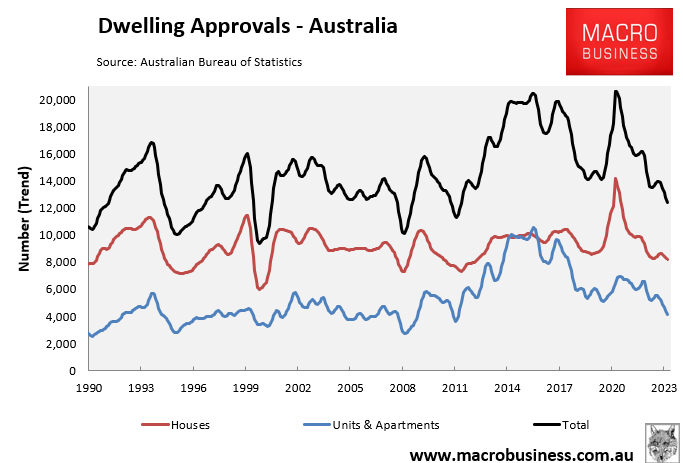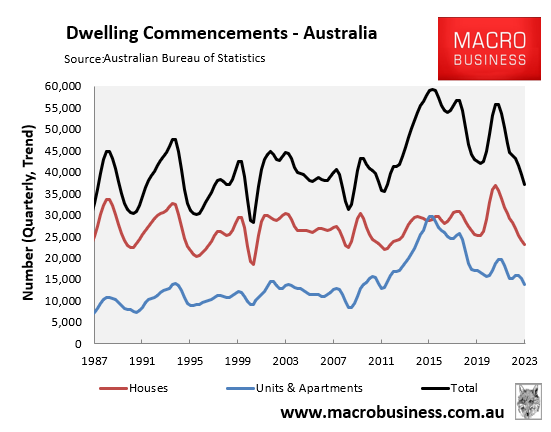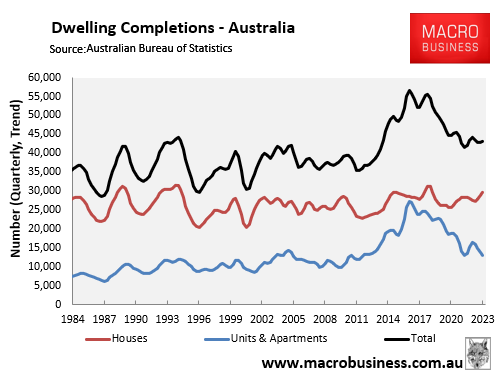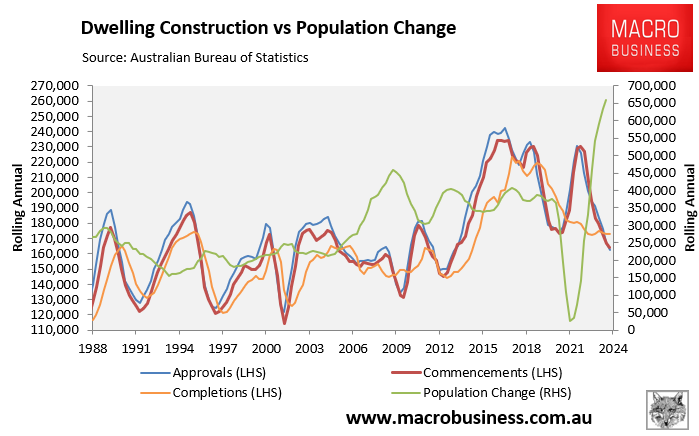Last week, the Australian Bureau of Statistics (ABS) released data showing that only 12,400 homes were approved for construction in trend terms in February, the lowest monthly reading since April 2012.

On that run rate, Australia would only build 149,000 homes a year, 91,000 below the Albanese government’s construction target of 240,000 homes a year.
Data released by the ABS on Wednesday shows that there were only 37,200 homes commenced in the December quarter in trend terms, the worst quarterly result since June 2012:

This gives an annual run rate of 148,800, which is also around 91,000 below the Albanese government’s construction target of 240,000 homes a year.
Only 43,100 homes were completed in Australia over the December quarter in trend terms, well below the 60,000 homes required each quarter to meet the Albanese government’s construction target:

In the year to December 2023, Australia built only 172,700 homes, which was around 67,000 below the Albanese government’s target.
The following chart plots annual dwelling approvals, commencements and completions against Australia’s 660,000 population growth over the year to September (latest available data):

As you can see, housing supply is headed in the wrong direction, which is why Australia is experiencing an unprecedented rental crisis.
Commenting on the data, lobby group Master Builders Australia (MBA) said the figures point to further pressure on an already stretched rental market:
“The mismatch between the supply of new homes to the rental market and demand for rental accommodation is particularly worrying”, MBA chief economist Shane Garrett said.
“Rental inflation continues to accelerate at a time when price pressures across the rest of the economy have been abating”.
The Albanese government’s decision to open the immigration floodgates into a supply-constrained market was pure policy idiocy that will see more Australians pushed into rental stress, shared housing, and homelessness.

